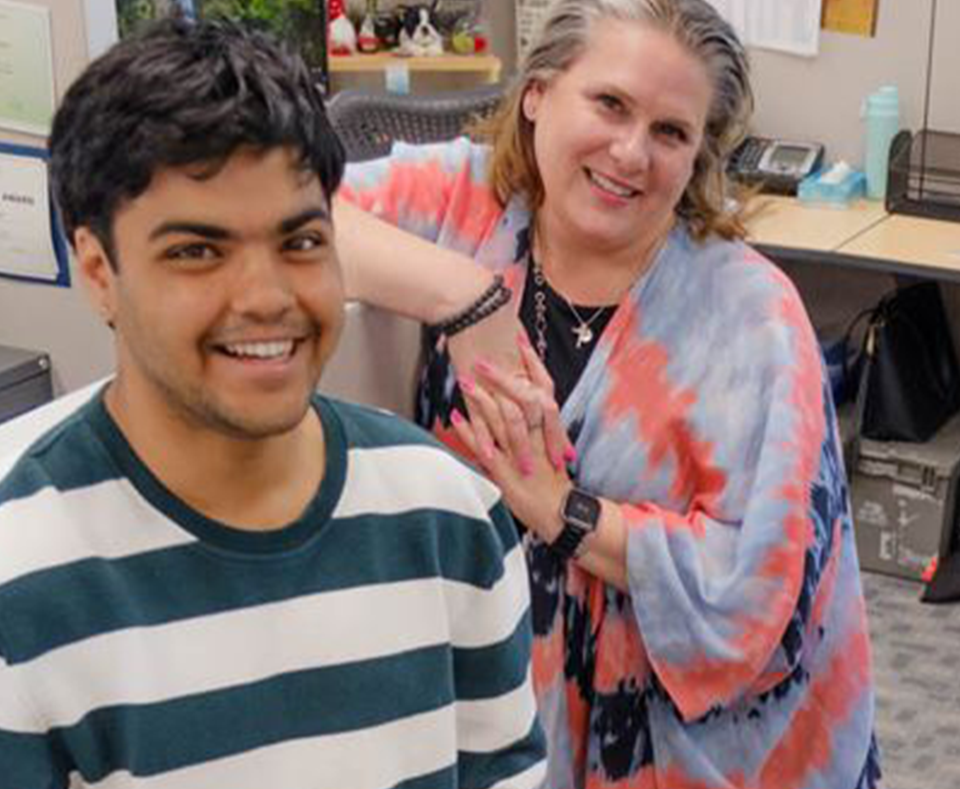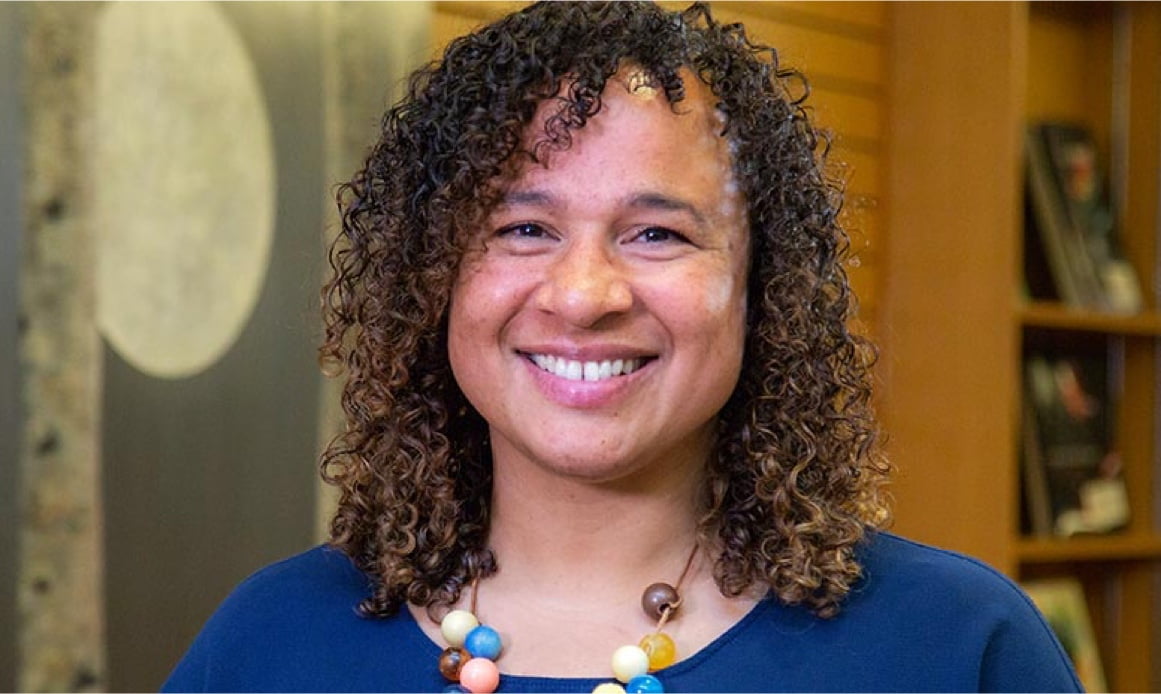Occupational Therapist
Job Summary:
In accordance with the Mission, Vision and Values, and strategic directions of Provincial Health Services Authority patient safety is a priority and a responsibility shared by everyone at PHSA, and as such, the requirement to continuously improve quality and safety is inherent in all aspects of this position. The Occupational Therapist provides occupational therapy services to individuals who have complex mental health illnesses and may have co-occurring addictions and medical conditions, to enable clients to achieve and maintain optimal health outcomes, by working independently and as a member of an interdisciplinary team. Performs assessments of clients’ occupational performance utilizing an evidence-based approach, plans and implements outcome oriented services, evaluates the effectiveness of the services, prepares and maintains records, participates in interdisciplinary research, demonstrates safe and effective resource utilization and quality management, and contributes to the development, review and promotion of occupational therapy services. Uses knowledge and skill in the area of professional practice to independently manage a complex caseload and implements occupational therapy services utilizing diverse intervention approaches. Acts as an Occupational Therapy resource for the designated area/s and provides education and counseling to clients/families. As required, contributes to the organization and delivery of occupational therapy services, provides leadership, direction and clinical guidance to rehabilitation staff and participates in departmental/program quality improvement initiatives, meetings, research and education.
Duties/Accountabilities:
1. Assesses clients who are affected by complex substance use, mental health and medical issues by considering their personal context, goals, interests, needs, safety, environment and resources by utilizing an evidence-based approach, reviewing records, gathering information relevant to the situation, interviewing the client, and determining suitability of services to ensure occupational performance issues important to the client are addressed.
2. Plans outcome oriented occupational therapy services by collaborating with the client, caregivers/family and other health care providers; identifies client and therapist expectations for service and defines an approach and focus for service; establishes and prioritizes expected outcomes; discusses service implementation options; and determines sources and duration of service to meet identified short and long-term client goals.
3. Implements occupational therapy services utilizing diverse intervention approaches by carrying out the plan, engaging the client in activities associated with occupational roles and the client’s goals, assessing and modifying the implementation, and identifying completion criteria to promote, develop, maintain and/or restore occupational potential. Acts as a group leader/co-leader in the provision of groups to meet the rehabilitation and psycho-educational needs of clients in the areas behavior and development; and by supporting case managers with clients.
4. Uses knowledge and skill in the area of professional practice to independently manage a complex caseload. Coordinates care for clients by applying case management principles, carrying out health, psychosocial, functional/environmental and safety/risk assessments, identifying problems, addressing issues in collaboration with clients and families and works with the appropriate physicians, interdisciplinary team members and/or clients/families to identify and utilize community supports and agencies. Participates or leads inter-agency and/or multidisciplinary team case management coordination as required.
5. Provides education and counseling to clients/families regarding the functional and rehabilitation issues of clients in the areas of behavior and development, personal life, education, leisure and work; and provides information and guidance to other caregivers, health service providers, staff and other community agencies.
6. Evaluates occupational therapy services, including quality and outcomes, in collaboration with the client and family in keeping with the client’s goals by determining the purpose, method and criteria of the evaluation, implementing the evaluation, and analyzing and interpreting results to utilize results for service delivery and future planning of occupational therapy services.
7. Consults, confers and collaborates with interdisciplinary staff, health care professionals, clients, families, caregivers and other community resources in the identification and resolution of client/family/caregiver care issues, revision or termination of services, cultural and language barriers, ethical dilemmas, and coordination and integration of care, and makes referrals to other services providers, as appropriate.
8. Implements therapeutic volunteer programs as required, according to the organization’s policies and procedures, by methods such as assisting individual clients to access and maintain therapeutic volunteer placements, and coordinating the monitoring and review of recipients receiving therapeutic volunteer programs.
9. Maintains a variety of records including client files by gathering information, entering data into computerized databases and/or documenting information into approved formats according to the College of Occupational Therapists of BC practice standards. Notes client’s progress, changes to treatment plan, and records test/treatment results to provide evidence and rationale that support assessment findings and intervention plan. Compiles statistics on workload activities and summarizing information into written reports as requested.
10. Guides clinical experience of assigned occupational therapy and rehabilitation assistant students as assigned by providing clinical guidance and the opportunity to observe and take an active role in the treatment of occupational therapy clients, and provides input to the Manager and/or designate as requested on individual's progress in achieving established standards of care. Acts as an Occupational Therapy resource for the designated area/s; provides education, in-services, and attends a variety of meetings as a representative of Occupational Therapy.
11. Participates in team/program activities required to enhance and optimize the delivery of care and to facilitate evidence-based practice. Promotes quality management principles for team/program operations, identifies processes/procedures that require improvement, and drafts/revises guidelines, policies and procedures for review.
12. Participates on committees as directed to promote optimal support for clients, to facilitate the resolution of issues, to represent the rehabilitation goals on regional committees, and to advocate for the goals and objectives of the team/program.
13. Participates in approved occupational therapy and interdisciplinary research and special projects in collaboration with designated personnel/team and other health care professionals, through methods such as collecting data, summarizing information, and/or providing verbal updates for review and further analysis by principal researcher, research team and/or project coordinator.
14. Maintains and updates own clinical knowledge within area of practice, and develops a plan in collaboration with designated personnel/team for professional development. Reviews progress to ensure that goals are achieved within established time frames.
15. Carries out responsibilities in accordance with health and safety requirements. Immediately reports unsafe situations by notifying supervisor or other appropriate personnel.
16. Performs other related duties as assigned.
Qualifications:
Education, Training and Experience
• Baccalaureate in Occupational Therapy. Two (2) years’ recent, related experience working in a psychiatric setting with individuals who have complex mental health and addictions issues or equivalent. Current full registration with the College of Occupational Therapists of British Columbia (COTBC). Eligible for membership in the Canadian Association of Occupational Therapists (CAOT).
Skills and Abilities
• Knowledge of the principles of recovery in mental illness.
• Knowledge of Psychosocial Rehabilitation methodology.
• Knowledge of the Mental Health Act as it applies to the rights and obligations of clients and staff.
• Knowledge of community, social and mental health resources.
• Ability to identify emotional, social, or environmental barriers and intervene to eliminate stigma.
• Ability to effectively manage conflict situations and aggressive behaviour and use non-violent crisis intervention and behavioural management techniques.
• Ability to work both independently and collaboratively as a member of an interdisciplinary team.
• Ability to communicate effectively, both verbally and in writing with clients, families, team members, other groups and community agency personnel.
• Broad knowledge of therapy theory and clinical practice within a client and family centred model of care.
• Broad knowledge of other health care disciplines and their role in client care.
• Demonstrated ability to teach and empower clients to assume control over their health.
• Demonstrated ability to work independently and in collaboration with others.
• Demonstrated ability to provide effective consultation.
• Demonstrated ability to establish workload priorities in collaboration with others in a complex health care environment.
• Demonstrated ability to recognize when referral to another health care professional is required.
• Basic knowledge of evidence-based clinical practice related to designated program/area.
• Basic understanding of trauma-informed care
• Basic computer literacy to operate a computerized client care information system and word processing, spreadsheet, Internet and e-mail software.
• Basic knowledge of clinical standardized tests and measures.
• Basic knowledge of research process and methodology.
• Physical ability to perform the duties of the position.
• Skill in the use of equipment, and in the techniques appropriate to occupational therapy treatment.
In accordance with the Mission, Vision and Values, and strategic directions of Provincial Health Services Authority patient safety is a priority and a responsibility shared by everyone at PHSA, and as such, the requirement to continuously improve quality and safety is inherent in all aspects of this position. The Occupational Therapist provides occupational therapy services to individuals who have complex mental health illnesses and may have co-occurring addictions and medical conditions, to enable clients to achieve and maintain optimal health outcomes, by working independently and as a member of an interdisciplinary team. Performs assessments of clients’ occupational performance utilizing an evidence-based approach, plans and implements outcome oriented services, evaluates the effectiveness of the services, prepares and maintains records, participates in interdisciplinary research, demonstrates safe and effective resource utilization and quality management, and contributes to the development, review and promotion of occupational therapy services. Uses knowledge and skill in the area of professional practice to independently manage a complex caseload and implements occupational therapy services utilizing diverse intervention approaches. Acts as an Occupational Therapy resource for the designated area/s and provides education and counseling to clients/families. As required, contributes to the organization and delivery of occupational therapy services, provides leadership, direction and clinical guidance to rehabilitation staff and participates in departmental/program quality improvement initiatives, meetings, research and education.
Duties/Accountabilities:
1. Assesses clients who are affected by complex substance use, mental health and medical issues by considering their personal context, goals, interests, needs, safety, environment and resources by utilizing an evidence-based approach, reviewing records, gathering information relevant to the situation, interviewing the client, and determining suitability of services to ensure occupational performance issues important to the client are addressed.
2. Plans outcome oriented occupational therapy services by collaborating with the client, caregivers/family and other health care providers; identifies client and therapist expectations for service and defines an approach and focus for service; establishes and prioritizes expected outcomes; discusses service implementation options; and determines sources and duration of service to meet identified short and long-term client goals.
3. Implements occupational therapy services utilizing diverse intervention approaches by carrying out the plan, engaging the client in activities associated with occupational roles and the client’s goals, assessing and modifying the implementation, and identifying completion criteria to promote, develop, maintain and/or restore occupational potential. Acts as a group leader/co-leader in the provision of groups to meet the rehabilitation and psycho-educational needs of clients in the areas behavior and development; and by supporting case managers with clients.
4. Uses knowledge and skill in the area of professional practice to independently manage a complex caseload. Coordinates care for clients by applying case management principles, carrying out health, psychosocial, functional/environmental and safety/risk assessments, identifying problems, addressing issues in collaboration with clients and families and works with the appropriate physicians, interdisciplinary team members and/or clients/families to identify and utilize community supports and agencies. Participates or leads inter-agency and/or multidisciplinary team case management coordination as required.
5. Provides education and counseling to clients/families regarding the functional and rehabilitation issues of clients in the areas of behavior and development, personal life, education, leisure and work; and provides information and guidance to other caregivers, health service providers, staff and other community agencies.
6. Evaluates occupational therapy services, including quality and outcomes, in collaboration with the client and family in keeping with the client’s goals by determining the purpose, method and criteria of the evaluation, implementing the evaluation, and analyzing and interpreting results to utilize results for service delivery and future planning of occupational therapy services.
7. Consults, confers and collaborates with interdisciplinary staff, health care professionals, clients, families, caregivers and other community resources in the identification and resolution of client/family/caregiver care issues, revision or termination of services, cultural and language barriers, ethical dilemmas, and coordination and integration of care, and makes referrals to other services providers, as appropriate.
8. Implements therapeutic volunteer programs as required, according to the organization’s policies and procedures, by methods such as assisting individual clients to access and maintain therapeutic volunteer placements, and coordinating the monitoring and review of recipients receiving therapeutic volunteer programs.
9. Maintains a variety of records including client files by gathering information, entering data into computerized databases and/or documenting information into approved formats according to the College of Occupational Therapists of BC practice standards. Notes client’s progress, changes to treatment plan, and records test/treatment results to provide evidence and rationale that support assessment findings and intervention plan. Compiles statistics on workload activities and summarizing information into written reports as requested.
10. Guides clinical experience of assigned occupational therapy and rehabilitation assistant students as assigned by providing clinical guidance and the opportunity to observe and take an active role in the treatment of occupational therapy clients, and provides input to the Manager and/or designate as requested on individual's progress in achieving established standards of care. Acts as an Occupational Therapy resource for the designated area/s; provides education, in-services, and attends a variety of meetings as a representative of Occupational Therapy.
11. Participates in team/program activities required to enhance and optimize the delivery of care and to facilitate evidence-based practice. Promotes quality management principles for team/program operations, identifies processes/procedures that require improvement, and drafts/revises guidelines, policies and procedures for review.
12. Participates on committees as directed to promote optimal support for clients, to facilitate the resolution of issues, to represent the rehabilitation goals on regional committees, and to advocate for the goals and objectives of the team/program.
13. Participates in approved occupational therapy and interdisciplinary research and special projects in collaboration with designated personnel/team and other health care professionals, through methods such as collecting data, summarizing information, and/or providing verbal updates for review and further analysis by principal researcher, research team and/or project coordinator.
14. Maintains and updates own clinical knowledge within area of practice, and develops a plan in collaboration with designated personnel/team for professional development. Reviews progress to ensure that goals are achieved within established time frames.
15. Carries out responsibilities in accordance with health and safety requirements. Immediately reports unsafe situations by notifying supervisor or other appropriate personnel.
16. Performs other related duties as assigned.
Qualifications:
Education, Training and Experience
• Baccalaureate in Occupational Therapy. Two (2) years’ recent, related experience working in a psychiatric setting with individuals who have complex mental health and addictions issues or equivalent. Current full registration with the College of Occupational Therapists of British Columbia (COTBC). Eligible for membership in the Canadian Association of Occupational Therapists (CAOT).
Skills and Abilities
• Knowledge of the principles of recovery in mental illness.
• Knowledge of Psychosocial Rehabilitation methodology.
• Knowledge of the Mental Health Act as it applies to the rights and obligations of clients and staff.
• Knowledge of community, social and mental health resources.
• Ability to identify emotional, social, or environmental barriers and intervene to eliminate stigma.
• Ability to effectively manage conflict situations and aggressive behaviour and use non-violent crisis intervention and behavioural management techniques.
• Ability to work both independently and collaboratively as a member of an interdisciplinary team.
• Ability to communicate effectively, both verbally and in writing with clients, families, team members, other groups and community agency personnel.
• Broad knowledge of therapy theory and clinical practice within a client and family centred model of care.
• Broad knowledge of other health care disciplines and their role in client care.
• Demonstrated ability to teach and empower clients to assume control over their health.
• Demonstrated ability to work independently and in collaboration with others.
• Demonstrated ability to provide effective consultation.
• Demonstrated ability to establish workload priorities in collaboration with others in a complex health care environment.
• Demonstrated ability to recognize when referral to another health care professional is required.
• Basic knowledge of evidence-based clinical practice related to designated program/area.
• Basic understanding of trauma-informed care
• Basic computer literacy to operate a computerized client care information system and word processing, spreadsheet, Internet and e-mail software.
• Basic knowledge of clinical standardized tests and measures.
• Basic knowledge of research process and methodology.
• Physical ability to perform the duties of the position.
• Skill in the use of equipment, and in the techniques appropriate to occupational therapy treatment.
Learn More
Related Content
-
 Our Programs Explore to find the right program for you at PHSA.
Our Programs Explore to find the right program for you at PHSA. -
 Clinical and Systems Transformations | Careers at PHSA Clinical & Systems Transformation (CST) is a large-scale, multi-year project between Vancouver Coastal Health (VCH), PHSA, and PHC. Learn more here.
Clinical and Systems Transformations | Careers at PHSA Clinical & Systems Transformation (CST) is a large-scale, multi-year project between Vancouver Coastal Health (VCH), PHSA, and PHC. Learn more here. -
 Rewarding Health Care Nursing Careers and Jobs with PHSA Provide specialty nursing in clinical health care and research. Explore careers throughout B.C. with the Provincial Health Services Authority (PHSA).
Rewarding Health Care Nursing Careers and Jobs with PHSA Provide specialty nursing in clinical health care and research. Explore careers throughout B.C. with the Provincial Health Services Authority (PHSA). -
 Indigenous Health Care Jobs and Careers with PHSA Join our thriving Indigenous workforce in a corporate or clinical role. Explore careers in B.C. with the Provincial Health Services Authority (PHSA).
Indigenous Health Care Jobs and Careers with PHSA Join our thriving Indigenous workforce in a corporate or clinical role. Explore careers in B.C. with the Provincial Health Services Authority (PHSA). -
 Physician Careers at PHSA Our PHSA medical leadership team provides care that is among the best in the world, contributing to research that is changing the future of health care.
Physician Careers at PHSA Our PHSA medical leadership team provides care that is among the best in the world, contributing to research that is changing the future of health care. -
 Health Care Correctional Health Services Jobs and Careers With PHSA Correctional Health Services provides exceptional care for incarcerated patients. Join us in a career with Provincial Health Services Authority (PHSA).
Health Care Correctional Health Services Jobs and Careers With PHSA Correctional Health Services provides exceptional care for incarcerated patients. Join us in a career with Provincial Health Services Authority (PHSA). -

-

-
 Talent on Demand Talent on Demand is PHSA’s unique in-house recruitment program offering temporary employment opportunities in health care across British Columbia.
Talent on Demand Talent on Demand is PHSA’s unique in-house recruitment program offering temporary employment opportunities in health care across British Columbia. -
 Recruitment Incentives PHSA's Recruitment Incentives program offers monetary incentives to support the hiring of nurses and allied health professionals for difficult-to-fill roles.
Recruitment Incentives PHSA's Recruitment Incentives program offers monetary incentives to support the hiring of nurses and allied health professionals for difficult-to-fill roles.
Jobs for You
- Director, Clinical Education and Practice Initiatives, PMIO Feb. 12, 2025
- Housekeeper Feb. 12, 2025
- Occupational Therapist Feb. 12, 2025
You have not recently viewed any jobs
You have not saved any jobs











